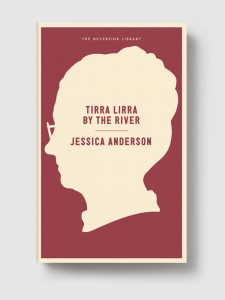


Instead I found a wise, poignant and incisive novel, a worthy forerunner to Moon Tiger (1987) and Cat’s Eye (1988), and inventive in its approach to the shifting sands of memory. Being from the 1970s I was prepared for it to be fusty, dated, parochial, or all three.

I knew it was frequently assigned to high school English classes, which is not exactly a distinction, considering the truly awful Australian books I was made to read at school. I’d vaguely heard of Tirra Lirra because it pops up on those lists of Best Australian Novels and had won the Miles Franklin award. Published in 1978, Tirra Lirra is the earliest of the three, which each examine the life of a singular woman through the lens of personal recollection. Tirra Lirra by the River brought to mind for me Moon Tiger by Penelope Lively, and Cat's Eye by Margaret Atwood. A book about the sweetness of escape, and the mix of pain and acceptance that comes with returning home. Her memory is imperfect, but the strength and resilience she shows over the years is nothing short of extraordinary. With grace and humor, Nora recounts her desire to escape, the way her marriage went wrong, the vanity that drove her to get a facelift, and one romantic sea voyage that has kept her afloat during her dark years.

They help to nurse her back from pneumonia, and slowly let her in on the dark secrets of the neighborhood in the years that have lapsed. Her life has taken her from a failed marriage in Sydney to freedom in London she forged a modest career as a seamstress and lived with two dear friends through the happiest years of her adult life.Īt home, the neighborhood children she remembers have grown into compassionate adults. Nora Porteous, a witty, ambitious woman from Brisbane, returns to her childhood home at age seventy. One of Australia’s most celebrated novels: one woman’s journey from Australia to London


 0 kommentar(er)
0 kommentar(er)
